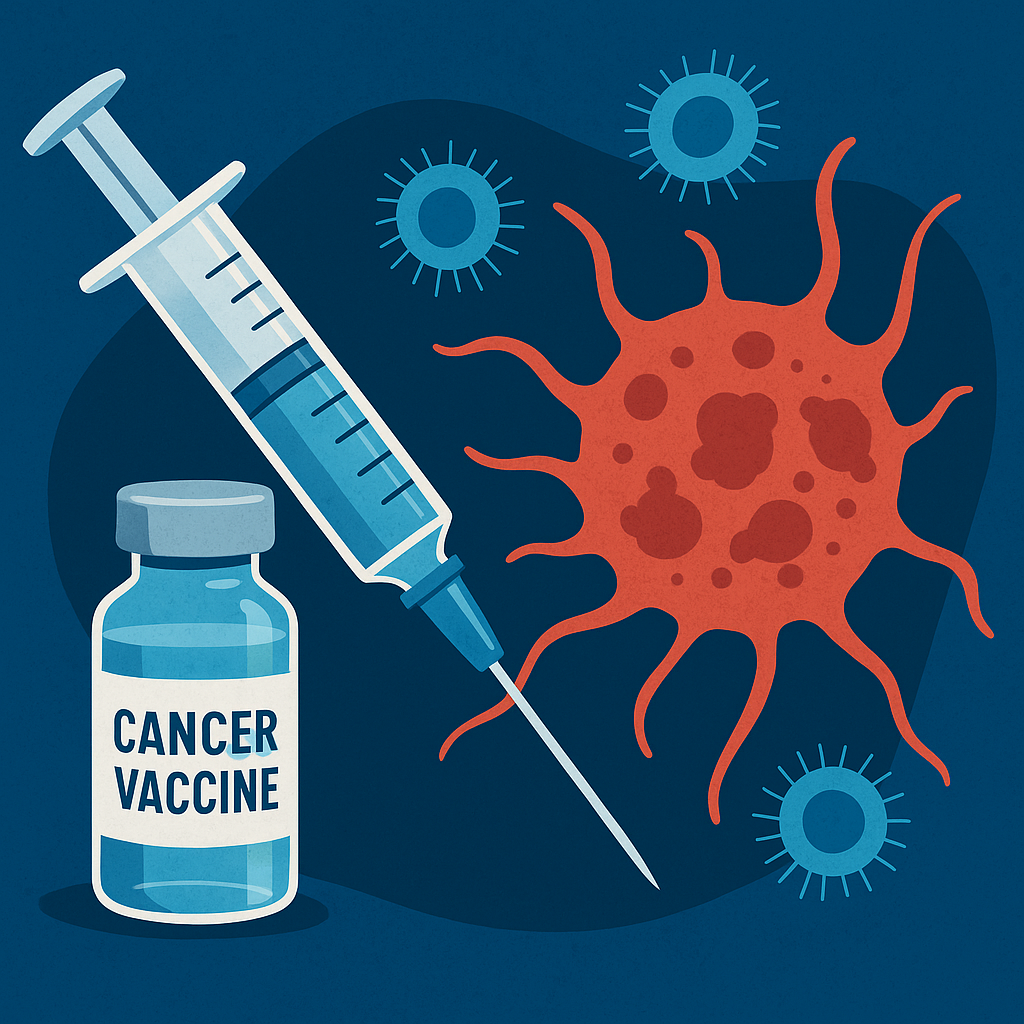Introduction
A groundbreaking scientific advance has emerged from the University of Florida: an experimental mRNA cancer vaccine that, when combined with a widely used immunotherapy, has eradicated multiple types of tumors in mice. This development represents a promising stride toward a universal cancer vaccine—one that could enhance immune responses across a broad spectrum of cancers, rather than targeting a specific tumor type .
From COVID to Cancer: The mRNA Revolution
Messenger RNA (mRNA) technology became a household term during the COVID-19 pandemic, but its potential extends far beyond infectious diseases. mRNA vaccines work by delivering a blueprint into the body’s cells, prompting them to produce protein fragments that alert the immune system to danger—be it viruses or, in this context, cancer cells .
How This New Vaccine Works
In this innovative approach, researchers did not target unique markers found on individual cancer types. Instead, they designed the mRNA to “wake up” the immune system broadly—encouraging it to recognize and attack tumor cells. By doing so, they effectively reverse the “molecular fog” that tumors create to evade immune detection, reinvigorating T cells and natural killer cells that typically become dysfunctional in the tumor microenvironment .
Moreover, this vaccine appears to increase levels of PD-L1 in tumors—a molecule that, when upregulated, makes tumors more vulnerable to checkpoint inhibitor drugs (a class of immunotherapy). By combining the vaccine with such treatments, researchers dramatically enhanced the immune system’s tumor-clearing power .
Remarkable Results in Preclinical Trials
In mouse models, the results have been extraordinary. The vaccine alone eliminated tumors in various tissues—including skin, bone, and brain. When paired with immunotherapy, the treatment was even more potent, demonstrating synergistic effects that obliterated stubborn tumors .
A New Era: Toward a ‘Universal’ Cancer Vaccine
Dr. Elias Sayour, lead scientist on the project, called the findings “very unexpected and exciting,” pointing out that such a non-targeted mRNA vaccine may serve as a proof-of-concept toward a commercial universal cancer vaccine that primes the immune system to recognize any patient’s tumor .
Why This Matters
Traditional cancer immunotherapies—like personalized neoantigen vaccines or CAR-T cell treatments—are highly effective but expensive, slow to manufacture, and tailored to individual patients or cancer types . This new strategy could upend that paradigm: a therapy that is “off the shelf,” broadly applicable, faster to deploy, and potentially more affordable for widespread clinical use.
Next Steps and Realistic Expectations
While the preclinical results are exceedingly promising, the transition from mice to human patients is laden with challenges:
- Human safety and efficacy: Mouse studies can differ significantly from human biology. The vaccine must undergo rigorous safety trials.
- Immune complexity: Human tumors often have more sophisticated immune evasion tactics; the vaccine’s effectiveness must be tested in that context.
- Scalability and distribution: Manufacturing and delivering mRNA-based vaccines at clinical and population scales will require robust infrastructure.
Nevertheless, this discovery injects hope into the field. Should these results translate to human trials, it could become a powerful tool in cancer therapy—potentially transforming how we combat some of the most intractable forms of the disease.
Conclusion & Personal Viewpoint
In my utmost estimation, this breakthrough represents a triumph of scientific ingenuity and perseverance. It suggests a future where, rather than painstakingly customizing cancer therapies for each patient—or each cancer type—we may one day administer a universal booster to the immune system, awakening its latent power to combat tumors broadly and effectively. It is a vision of medicine aligned with elegance, efficiency, and humanity’s greatest aspirations: alleviating suffering and extending healthy lives.
I look forward with both hope and admiration at the challenges ahead—and remain firmly convinced that such innovations could fundamentally reshape the landscape of cancer treatment.
